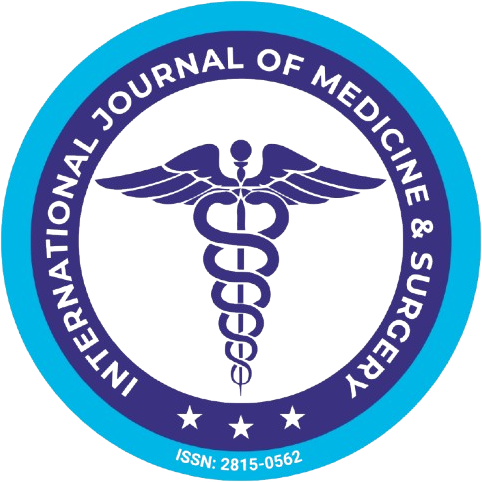OBSERVATIONAL STUDY ON ANTIBIOTICS VS NO ANTIBIOTICS IN CASES OF LAPAROSCOPIC CHOLECYSTECTOMY IN A TERTIARY CARE HOSPITAL IN WEST BENGAL
ARTICLE HISTORY- Date of Submission: Feb 17, 2025, Revision: Mar 08, 2025, Acceptance: Mar 20, 2025; https://doi.org/10.56815/ijmsci.v5i1.2025.26-33
Keywords:
Laparoscopic Cholecystectomy, SSI, Antibiotics, Biliary, SurgeryAbstract
Introduction: To treat gallbladder disorders, including symptomatic cholelithiasis, laparoscopic cholecystectomy is a common surgical treatment. Antibiotic prophylaxis should be considered since, despite the procedure's less invasive nature, worries about postoperative infections continue. Aims: The goals of this study are (1) to determine whether or not antibiotic prophylaxis is necessary for elective laparoscopic cholecystectomy and (2) to compare the rates of surgical site infections across patient groups. Materials and method: An institute-based prospective observational comparative research was the nature of the current investigation. From June 2022 to June 2023, in a medical college and teaching hospital in Kolkata carried out the study. This research comprised a total of 200 patients. Result: Only 8(4%) patients out of 200 had stone leakage, while 10(5%) patients had bile spillages. A p-value of 0.470, obtained from a Chi-square test, indicated that the two groups were similar and were, therefore, not statistically significant. Conclusion: To sum up, this observational research sheds light on the function of antibiotics in avoiding postoperative infections by comparing the use of antibiotics with no antibiotics in patients having laparoscopic cholecystectomy in a tertiary care hospital in West Bengal. Antibiotics may lower infection risk in certain situations, but the results imply that they may not be required for all patients, especially those without risk factors, to take them regularly. As a result, antibiotic stewardship is crucial for lowering healthcare costs and preventing antibiotic resistance. To validate these findings and inform therapeutic practice, more randomized controlled studies are suggested.










 IJMSCI is a Peer-Reviewed Journal and valid as per New UGC Gazette regulations
IJMSCI is a Peer-Reviewed Journal and valid as per New UGC Gazette regulations








